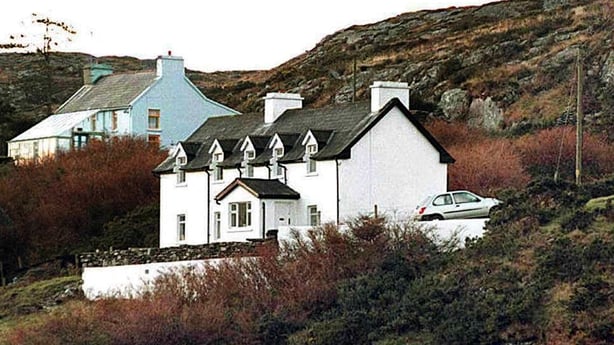The policing watchdog, GSOC, has said it had "serious concerns" over the deliberate alteration of key garda documents relating to the investigation into the murder of French woman Sophie Toscan du Plantier, according to a new report.
However, the Ombudsman has also said that it found no evidence of any high-level corruption by gardaí, as alleged in complaints by Englishman Ian Bailey, his partner Jules Thomas, and Marie Farrell, a controversial witness in the case, whose claims prompted the GSOC probe into aspects of the Garda murder investigation.
Ms Toscan du Plantier was found beaten to death on a laneway leading to her holiday home near Schull in west Cork, two days before Christmas in 1996.
No one has ever been charged over her killing.
In its report released online today, GSOC says that serious concern arose during its investigation into the force's handling of the murder probe, around the "interference with the Jobs Book which appears to have taken place while in the custody of gardaí".
Garda Jobs Books are meant to contain an entire record of the progress of a major investigation, outlining all actions undertaken by gardaí and the reasons that these actions were raised in the first place.
We need your consent to load this rte-player contentWe use rte-player to manage extra content that can set cookies on your device and collect data about your activity. Please review their details and accept them to load the content.Manage Preferences
GSOC said its "grave concern" over the alteration of these A4 books was "compounded further by the fact that the specific pages missing are from an area of the book when lan Bailey seems to have first been identified as a potential suspect in the murder by gardai - and as such, they are potentially very significant".
"It would not be possible for pages to simply fall out of the book by accident and for them to be removed, this would have to have been a deliberate act," the report concludes.

Read more: GSOC report into du Plantier investigation

GSOC said it was unable to clarify when the interference may have taken place other than believing it was likely to have occurred since a review of the file in 2002, but possibly as far back as the 1990s.
The report also says that GSOC was concerned with the loss of some exhibits as part of the case.
It added that this was "not the first case where this had occurred" in its experience, although it did say that as the murder probe into Ms du Plantier's murder was an open investigation, that the keeping safe of exhibits and evidence should be of utmost importance to gardaí.
The Garda Ombudsman said that many of the witnesses, including gardaí, to whom it wished to interview had either retired or died, and that in some cases other witnesses had declined to cooperate.
As a result, GSOC has said it will take "no further action" on foot of complaints made by Mr Bailey and Ms Thomas.
GSOC said it had considered whether the interference of the Jobs Book warranted sending a file to the Director of Public Prosecution, but that it had chosen not to on the basis that one of the main gardaí who had responsibility for the documents had since passed away.
Bailey's solicitor not surprised by findings

Mr Bailey's solicitor Frank Buttimer has said he is not surprised by the findings of the GSOC investigation.
Mr Buttimer said he had not had an opportunity to read the report but, insofar as he understood its conclusions, he was not surprised.
He said making a complaint to GSOC appeared to be a completely wasted exercise on the part of Mr Bailey.
Speaking to RTÉ News, Mr Buttimer described GSOC as a toothless organisation which lacks the appropriate investigative powers and is not fit for purpose.
Mr Buttimer said he had spoken to his client earlier today. He said Mr Bailey was disappointed but not surprised by the outcome of the investigation.
Additional reporting: Paschal Sheehy







